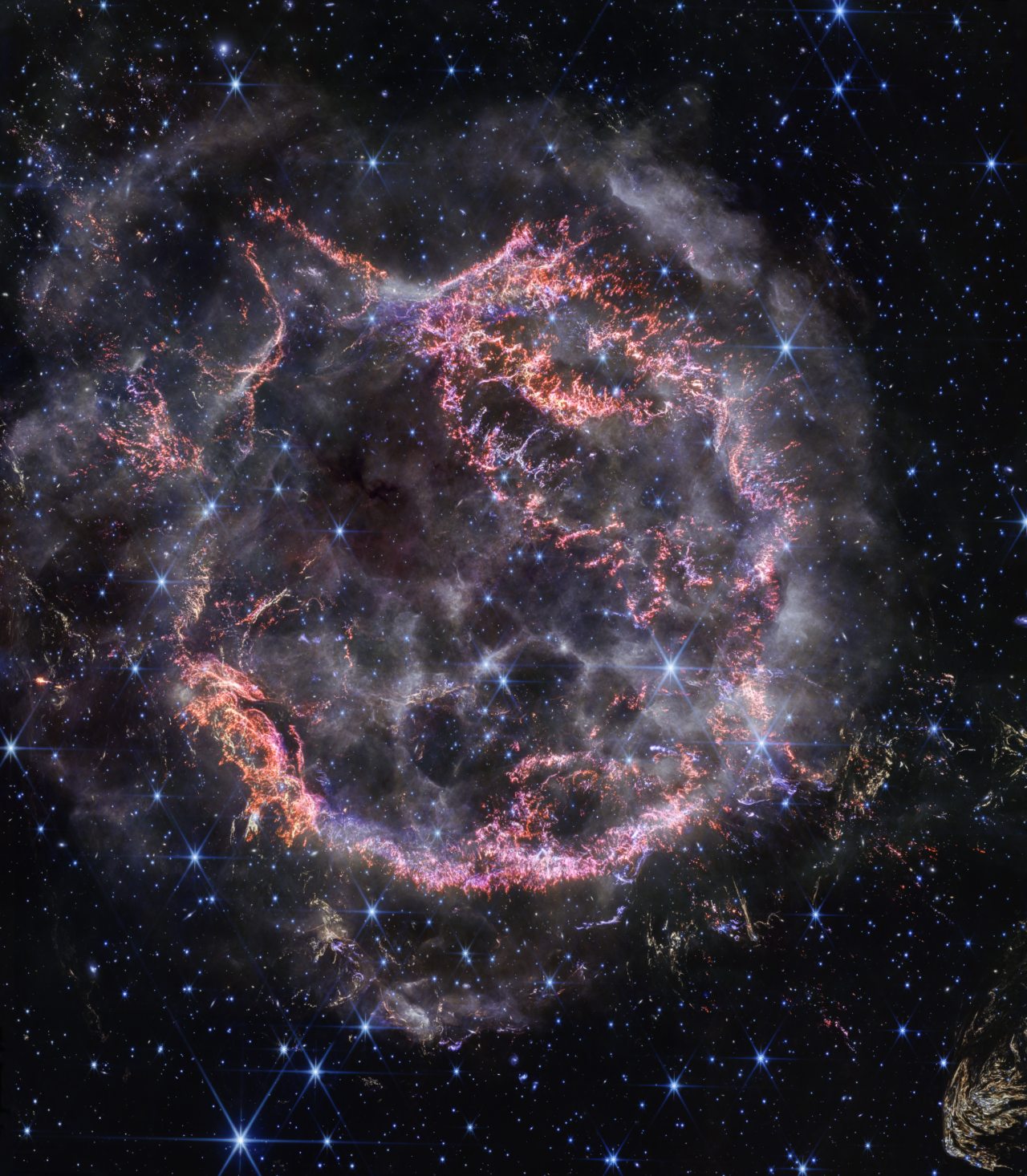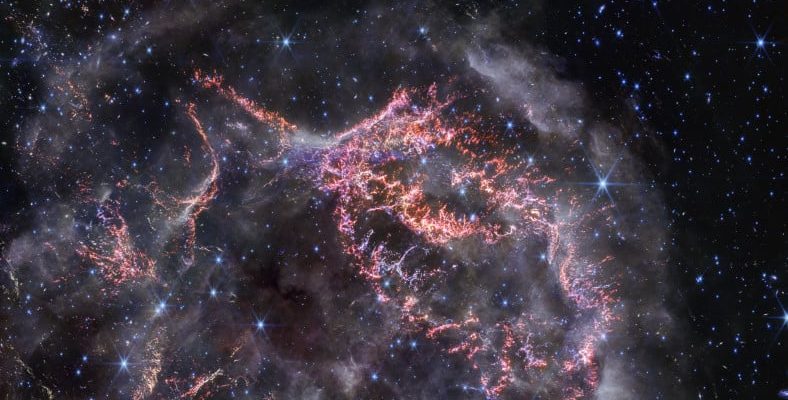NASA’s James Webb Space Telescope captured images of the supernova called Cassiopeia A. In these images, infrared artifacts that cannot be seen by the human eye were also visualized.
We are in the last days of 2023 and the countdown for 2024 continues. NASA and First Lady of the United States Dr. Jill BidenFor the first time in history, a “White House Advent CalendarOne of the first images from the calendar is From the James Webb Space Telescope is coming. This image contains cosmic debris that we cannot see with the naked eye.
Stars live by converting various elements into other elements for several billion years. When they run out of nuclear fuel Some collapse in on themselves, some disappear with small explosions, and some scatter particles into space with spectacular explosions. Here are the last ones supernova We name it.
The remnant of a dying star
With NIRCam (Near-Infrared Camera) equipment on the James Webb Space Telescope Cassiopeia A (Cas A) A supernova called was observed. In fact, this supernova is one of the most studied structures by scientists, but it has never been seen this closely before. NIRCam It was not examined with. In April, the remains of the supernova were examined with Webb’s MIRI instrument.

The bright pink and orange visuals in the image, inner shell of supernova It consists of elements such as sulfur, argon, neon and oxygen. Although it is less colorful than the image taken with MIRI, it shows us something else: the ghost of the supernova. The nebular, bright background is actually synchrotron radiation. This electromagnetic radiation, which occurs as a result of the radial acceleration of charged particles, also shows the area that the supernova once occupied.
Source :
https://www.nasa.gov/missions/webb/nasas-webb-stuns-with-new-high-definition-look-at-exploded-star/
